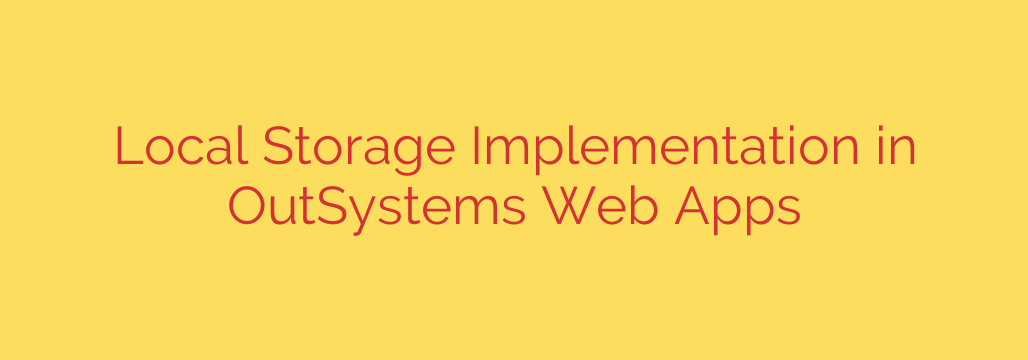
Implementing Local Storage in OutSystems web applications provides a powerful mechanism to manage data directly within the user’s browser. This client-side storage solution allows applications to store simple data persistently, meaning the data remains available even after the user closes and reopens the browser.
A primary benefit of leveraging Local Storage in OutSystems is the significant boost in performance. By storing frequently needed data locally, applications can reduce the number of requests made to the server, leading to faster load times and a more responsive user experience. It is particularly valuable for enabling offline capabilities, allowing users to access or even work with certain data when connectivity is unavailable, syncing changes later when back online. Typical use cases include storing user interface preferences, temporary session data that doesn’t need server persistence, or caching small datasets to avoid repeated server calls.
Local Storage operates as a simple key-value store. You store data as string pairs, where each piece of data is associated with a unique key. Data retrieved using this key is also returned as a string, requiring conversion if you are storing more complex data types like numbers or JSON objects.
However, it is critical to be aware of the limitations and security risks. Local Storage has a limited capacity, typically ranging from 5MB to 10MB depending on the browser, making it unsuitable for large volumes of data. More importantly, data stored here is not encrypted and is accessible via client-side scripting. Therefore, it should never be used for sensitive personal information, credentials, or any data that requires strong security protection. It is also tied to the browser’s origin (protocol, domain, port), meaning data stored by one application on myapp.com cannot be accessed by another on anotherapp.com. When implementing Local Storage in OutSystems, carefully consider the type of data being stored and the potential implications for user security and data size within the browser limit. Proper management includes handling potential storage limits and understanding that the data persists indefinitely until explicitly cleared by the application or the user.
Source: https://itnext.io/using-local-storage-in-outsystems-web-applications-0d5e5229a691?source=rss—-5b301f10ddcd—4








